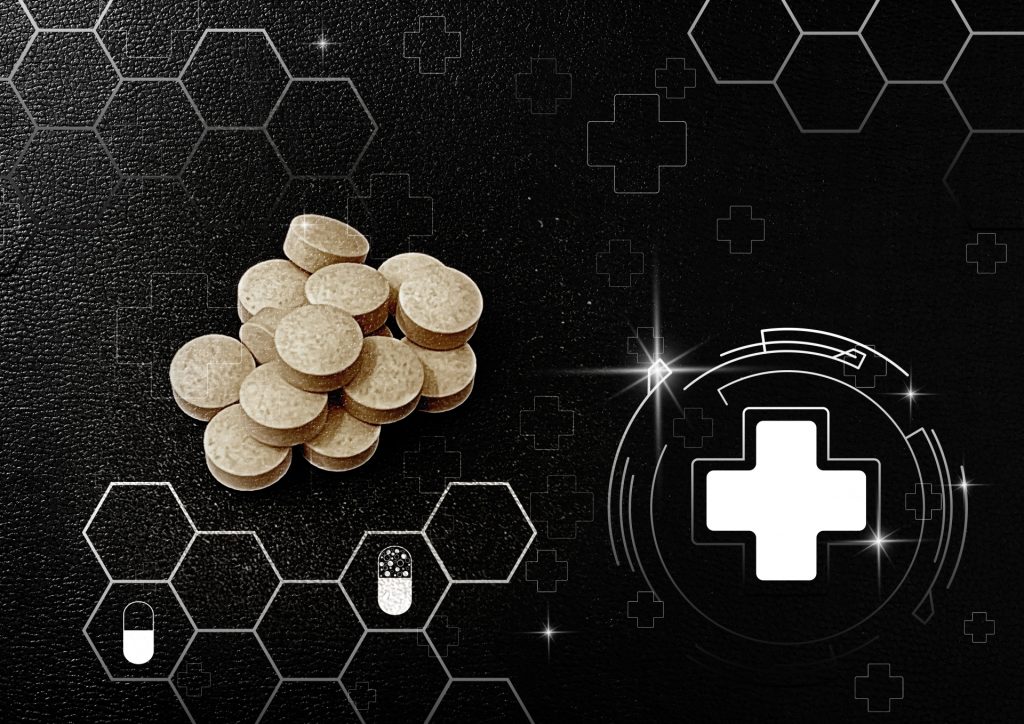
The evolution of genetic testing has ushered in an era in which individual constitutions and health risks can be scientifically analyzed. Based on genetic information, you can choose the diet, exercise, and lifestyle that best suit you, enabling you to improve your constitution and manage your health more effectively. This article introduces approaches to improving one’s constitution, specific health management methods, and the latest research results using genetic testing.
What is genetic testing?
A genetic test is a test that analyzes DNA sequences to evaluate genetic disposition and disease risk. The following types of tests are available
1. Nutritional Gene Testing
- Determine the metabolic capacity of the diet (ability to process carbohydrates, fats, and proteins)
- Analyze absorption efficiency of vitamins and minerals
- Assessing genetic obesity risk
2. Exercise Gene Testing
- Identify muscle type (endurance type and instantaneous type)
- Analyze adaptive capacity for exercise (ease of fat burning and muscle hypertrophy)
3. Disease Risk Gene Testing
- Evaluate genetic risk for diabetes, hypertension, cancer, etc.
- Planning preventive measures for lifestyle-related diseases
4. Skin and anti-aging genetic testing
- Analysis of collagen production capacity and skin aging progression
- Evaluation of UV resistance and antioxidant capacity
Improvement of physical condition using genetic testing
1. Relationship between diet and genes
It has been shown that different genes have different capacities to metabolize carbohydrates, fats, and proteins. Understanding one’s own constitution and choosing a diet suited to it will enable more efficient health management.
Genotype-specific diets
| genotype | feature | Recommended Meals |
| Poor carbohydrate metabolism (FTO gene mutation) | Carbohydrates make it easier to gain fat | Low GI Foods, Carbohydrate Restricted |
| Poor lipid metabolism (APOA5 gene mutation) | Difficult to break down lipids | Good fats (omega-3), low-fat diet |
| Low protein metabolism (PPARG gene mutation) | Difficulty in building muscle | High-protein diet (chicken, fish, soy) |
evidence
Studies have shown that people with the FTO gene mutation have greater weight loss benefits with carbohydrate restriction than with a normal diet (Qi et al., 2019).
DOI: 10.1093/ajcn/nqz156
2. Relationship between exercise and genes

Genes are also involved in the adaptive capacity for exercise. By utilizing genetic testing, efficient training methods can be selected.
Exercise methods by genotype
| genotype | feature | Recommended Training |
| Endurance type (ACTN3 R577X mutation) | Easily adaptable to prolonged exercise | Running, Cycling |
| Instantaneous type (ACTN3 RR type) | Good at short, high-intensity exercise | Weight training, sprinting |
| Low exercise tolerance (ACE gene mutation) | Tiredness and slow recovery | Low-intensity exercise (yoga, stretching) |
evidence
Studies have shown that mutations in the ACTN3 gene affect endurance gains and muscle development (Eynon et al., 2013).
DOI: 10.1152/japplphysiol.00140.2013
3. Relationship between lifestyle and genes
Epigenetics (acquired changes in gene expression) can regulate gene function by improving lifestyle.
Lifestyle habits that optimize gene expression
| one’s lifestyle | Genes affected | effect |
| Fasting | SIRT1 | Activates longevity genes and delays aging |
| good (quality) sleep | CLOCK | Regulates body rhythms and improves metabolism |
| Stress management (meditation, exercise) | NR3C1 | Regulates cortisol levels and reduces inflammation |
evidence
Studies have shown that fasting activates the SIRT1 gene and reduces the risk of aging and metabolic diseases (Guarente, 2013).
DOI: 10.1101/gad.227439.113
How to implement health care practices using genetic testing

- Understand your genetic risk (take a genetic test)
- Determine optimal methods of diet and exercise based on results
- Improve lifestyle and optimize epigenetic impact
- Regularly monitor health status and utilize data
Proper use of genetic testing allows for more scientifically based health management.
Individualized Optimized Health Plans Using Genetic Testing
Based on the results of genetic testing, it is possible to develop an optimal health care plan for an individual. This section introduces how genetic information can be used to manage health care, with specific examples.
1. Custom diet plans by genotype
Genetic testing allows you to scientifically select the diet that is right for you.
Genotype-specific diets
| genotype | feature | Recommended diet | Meals to avoid |
| FTO gene mutation | Low carbohydrate metabolism | Low GI foods, fiber-rich diet | Refined carbohydrates such as white rice, bread, and pasta |
| APOA5 gene mutation | Low lipid metabolism | Fish (omega-3), avocado, nuts | Fried foods, butter, processed meats |
| PPARG gene mutation | Low insulin sensitivity | Low carbohydrate, high protein | High GI foods, foods high in sugar |
A practical example: a case of FTO gene mutation
Ms. A, a 35-year-old woman, tried to lose weight but found that she easily gained weight when she consumed sugar. A genetic test revealed that she had the FTO gene mutation, and as a result of switching to a diet centered on a low GI diet, she succeeded in losing 5 kg in 6 months.
evidence
Studies have reported that people with the FTO gene mutation are more likely to benefit from a low-carbohydrate diet (Qi et al., 2019).
DOI: 10.1093/ajcn/nqz156
2. Genotype-specific exercise programs
Genetic testing can help determine what type of exercise is most effective.
Exercise program by genotype
| genotype | Characteristics of Exercise | Recommended Exercise |
| ACTN3 RR type | High instantaneous power | Weight training, sprinting |
| ACTN3 Type XX | having great endurance | Long distance running, cycling |
| ACE I/D type | Balanced type | Combination of muscle training + aerobic exercise |
Actual case: Case of ACTN3 XX type
Mr. B, a man in his 40s, was finding it difficult to get results even though he continued strength training. As a result of genetic testing, he was found to be ACTN3 XX type, an endurance type, and changed his training to mainly jogging and cycling. As a result, he succeeded in reducing his body fat percentage by 5% in 6 months.
evidence
Studies of the ACTN3 gene have shown that people with type XX are better suited for endurance exercise, while those with type RR are more effective at strength training and sprinting (Eynon et al., 2013).
DOI: 10.1152/japplphysiol.00140.2013
3. Relationship between genes and sleep

Genes have been shown to influence the quality of sleep. By implementing sleep improvement strategies that match your body type, you can improve the quality of your health care.
Sleep habits by genotype
| genotype | feature | Recommended Practices |
| CLOCK gene mutation | Body clock is easily disrupted | Regular bedtime, blue light countermeasures |
| PER3 gene mutation | Not afraid of short sleep | Ensure quality sleep even in short periods of time |
| ADA gene mutation | Susceptible to caffeine | Avoid caffeine intake later in the evening |
evidence
Studies have shown that people with the CLOCK gene mutation can reduce their risk of metabolic syndrome by getting regular sleep (Patel et al., 2008).
DOI: 10.1038/oby.2007.118
4. Relationship between genes and stress tolerance
Stress tolerance also involves genes, and by understanding one’s stress tolerance, appropriate measures can be taken.
Stress Management Methods by Genotype
| genotype | feature | Recommended Stress Management |
| COMT gene mutation | Low stress tolerance | Mindfulness, meditation, adaptogenic herb intake |
| OXTR gene mutation | Susceptible to social stress | Relationship review, therapy |
| BDNF gene mutation | Ups and downs in mood. | Establish an exercise routine and consume foods that promote serotonin secretion |
Actual case: COMT gene mutation case
Ms. C, a woman in her 30s, was easily stressed at work, and a genetic test revealed that she had the COMT gene mutation. Due to the slow breakdown of stress hormones, meditation and adaptogenic herbs (ashwagandha and rhodiola) were introduced, and as a result, her stress level was greatly improved.
The Future of Personalized Health Care Using Genetic Testing
Unlike conventional health care, genetic testing allows for an approach optimized for each individual’s constitution. In the future, health care using genetic information is expected to evolve further, enabling more detailed and individualized approaches.
1. Evolution of Health Care Using Genetic Data and AI
In recent years, genetic data analysis using AI (Artificial Intelligence) has been progressing; AI can analyze vast amounts of genetic information in a short period of time and propose optimal health management plans.
Examples of AI x Genetic Testing Applications
- Meal management app: automatically adjusts calories and nutritional balance based on genotype
- Personal Fitness Plans: Optimal training designed according to athletic ability and muscle characteristics
- Sleep Optimization Tool: Calculates ideal bedtime and wake-up time based on body clock genes
By combining AI and genetic data, it is believed that it will be possible to make lifestyle proposals that are “unique to the individual” rather than the conventional one-size-fits-all health management.

2. Genotypic Supplements and Personalized Nutrition
Custom supplements are now available that supplement an individual with optimal nutrients based on genetic information.
Genotype-specific supplement design
| genotype | Nutrient Characteristics | Recommended Supplement |
| MTHFR gene mutation | Low folic acid metabolism | Methylated folic acid, vitamin B12 |
| VDR gene mutation | Low absorption of vitamin D | Vitamin D3, magnesium |
| APOE4 gene mutation | High risk of cognitive decline | DHA/EPA, antioxidants |
For example, people with mutations in the MTHFR gene may benefit more from methylated folic acid than from regular folic acid, and thus may be able to maintain their health by choosing a specific supplement.
Thus, by utilizing genetic information, more efficient absorption and effective nutritional intake can be achieved.
3. Relationship between genetic testing and mental health
Genes have a significant impact not only on physical health, but also on mental health. Genetic testing can provide insight into stress tolerance and the ability to control emotions.
Genes involved in mental health
| gene | affect | improvement plan |
| 5-HTTLPR (serotonin transporter) | Low stress tolerance | Meditation, diet to increase serotonin |
| BDNF (brain-derived neurotrophic factor) | Ups and downs in mood | Exercise habits, vitamin D intake |
| COMT (catechol-O-methyltransferase) | Easily anxious | Magnesium supplementation, relaxation |
For example, people with certain mutations in the 5-HTTLPR gene have been shown to have a lower tolerance for stress and a higher risk of depression. In this case, consuming foods that increase serotonin (bananas, nuts, fish) can improve mental balance.
It is important to understand one’s genetic disposition and take appropriate measures to maintain mental health.
4. Relationship between genetic testing and anti-aging
As we age, gene expression in the body changes and aging progresses. However, a gene-level approach makes it possible to delay aging.

Genes involved in anti-aging
| gene | role | Anti-Aging Measures |
| SIRT1 (longevity gene) | Cell repair, aging inhibition | Resveratrol intake, fasting |
| FOXO3 (healthy longevity gene) | Oxidative Stress Resistance | Green tea polyphenols, omega-3 fatty acids |
| KLOTHO (senescence suppressor gene) | Control of the aging process | High-protein diet, vitamin D |
For example, activation of the SIRT1 gene can be achieved by fasting (intermittent fasting) and resveratrol (red wine, grapes) to inhibit cellular aging.
By utilizing genetic testing, we can build an anti-aging strategy based on scientific evidence, not just cosmetic measures.
5. Building a Personal Lifestyle through Genetic Testing
Health management based on genetic testing is not just a diagnosis, but a tool to optimize an individual’s lifestyle.
Example of a daily routine using genetic information
| time zone | Recommended Action | Target gene |
| morning | Green tea and protein intake | FOXO3 (antioxidant), PPARG (metabolic) |
| lunch | endurance training | ACTN3 XX (Endurance Enhancement) |
| evening | 30-minute meditation | 5-HTTLPR (stress reduction) |
| evening | Low-carbohydrate, high-protein diet | FTO (obesity prevention) |
Thus, by designing an optimal lifestyle based on genotype, lean health management is possible.
Genetic Testing is the Future of Health Care

With the development of genetic testing, our concept of health care is about to change dramatically. Instead of the traditional “generally accepted good health practices,” a scientific approach based on personal genetic information is becoming the mainstream. Here, we delve into the possibilities of future health care using genetic information in detail.
1. Possibilities for Next-Generation Medicine Using Genetic Information
With the use of genetic testing, disease prevention and treatment will become more personalized, shifting from the traditional “medicine that deals with symptoms when they appear” to “medicine that prevents them from occurring.
Evolution of medicine using genetic information
- Disease risk prediction: Genetic analysis identifies the risk of cancer, diabetes, and Alzheimer’s disease, and early preventive measures are taken.
- Tailor-made medicine: Select drugs and treatments that match individual genes and minimize the risk of side effects.
- Development of genetic vaccines: Enables vaccine design based on an individual’s immune response, reducing the risk of infectious disease
In the future, medical approaches based on genetic information will be standardized to establish optimal health maintenance methods for each individual.
lifestyle optimization using genetic testing
By utilizing genetic information, you can customize your daily routine more efficiently.
Examples of optimal lifestyle by genotype
| (data) item | genotype | Recommended Lifestyle |
| meal | FTO gene mutation | Low-carbohydrate, high-protein diet |
| motion | ACTN3 RR type | Short-time high-intensity training |
| sleep | CLOCK gene mutation | Constant bedtime and assisted melatonin |
| Stress Management | COMT gene mutation | Meditation/yoga, magnesium intake |
For example, people with the FTO gene mutation tend to store carbohydrates as fat when ingested, so a low-carbohydrate diet can reduce the risk of obesity. In addition, people with the CLOCK gene mutation are prone to disrupting their biological clock, so adopting regular sleep habits can help them lead healthier lives.
3. Integration of genetic analysis and wearable devices
Integrating genetic information with wearable devices, such as smartwatches and fitness trackers, makes it possible to manage health conditions in real time.

Genetic Analysis x Wearable Device Applications
- Blood glucose monitoring: minimize diabetes risk by combining genetic information-based dietary management with real-time blood glucose measurement
- Exercise optimization: Automatically adjusts training plans based on genotype to maximize exercise efficiency
- Stress management: Analyzes heart rate and sleep data based on genetic information to improve stress tolerance
For example, people with the stress-sensitive COMT gene mutation, which causes slow breakdown of stress hormones, can maintain mental balance by monitoring their state of relaxation with a wearable device linked to a meditation app.
4. Potential for disease prevention using genetic testing
Although the risk of disease is determined by both genetic and environmental factors, genetic testing can be used to minimize risk.
Disease Prevention Strategies by Genotype
| disease | related gene | Recommended preventive measures |
| diabetes | TCF7L2 | Low GI diet, regular exercise |
| high blood pressure | AGT | Salt restriction, potassium intake |
| Alzheimer’s disease | APOE4 | DHA/EPA intake, brain training |
For example, people with the APOE4 gene mutation are at high risk for Alzheimer’s disease, so early awareness of an antioxidant-rich diet and brain training can reduce dementia risk.
5. Personalized beauty using genetic information
Genetic information will also be used for skin care and anti-aging, enabling optimal beauty strategies based on skin type and aging trends.
Beauty Plans by Genotype
| genotype | Skin Features | Recommended Beauty Ingredients |
| COL1A1 mutation | Decreased SIRT1 activity | Vitamin C, peptides |
| MC1R mutation | Susceptible to UV damage | High SPF sunscreen, antioxidant serum |
| MC1R mutation | Easily aged | Resveratrol, niacinamide |
For example, people with the COL1A1 gene mutation have faster collagen degradation and can maintain skin elasticity by actively taking vitamin C and collagen supplements.
6. Social Impact of Widespread Use of Genetic Testing
As genetic testing becomes more common, it is expected to have a significant impact not only on individuals, but on society as a whole.
Social Impact of Genetic Testing
- Changes in the Insurance Industry: Health Risk Assessment Based on Genetic Information Advances
- Evolution of the food industry: providing meal plans that meet individual nutritional needs
- Reduced medical costs: Early prevention of disease controls medical costs.
This will enable a healthier and longer-lived society.
New possibilities through the integration of genetic testing and health care
The development of genetic testing has enabled a personalized approach that goes beyond traditional health management. This has ushered in an era in which lifestyles optimized for individual constitutions are expected to prevent disease, improve performance, and even lead to longevity.
1. Relationship between genetic testing and gut bacteria (microbiome)
The relationship between the gut microbiome (microbiome) and genes has been the focus of much attention in recent years. The gut environment has been shown to influence gene expression and play a role in health and disease risk.
Examples of Gene x Intestinal Bacteria Applications
- Integrate intestinal flora analysis and genetic information to build optimal dietary plans
- Adjust probiotics and prebiotics according to genotype
- Improving the intestinal environment strengthens the immune system and improves mental health
For example, people with a specific genotype (FUT2 gene mutation) have difficulty growing certain lactic acid bacteria in their intestines, so being aware of probiotic intake improves the intestinal environment. This not only improves digestive function, but also strengthens the immune system and reduces the risk of inflammation.
2. Diet and Obesity Prevention Using Genetic Testing
Genetic testing is the key to improving the success rate of weight loss. People who are genetically predisposed to gain weight may have difficulty with normal dieting methods, but genetic information can be used to design more effective weight loss programs.
Diet Strategy by Genotype
| genotype | Causes of weight gain | Optimal Diet |
| FTO gene mutation | Poor metabolism of carbohydrates | Low-carbohydrate, high-protein diet |
| PPARG gene mutation | Low insulin sensitivity | Low GI food-centered diet |
| ADRB2 gene mutation | Slow fat burning | High Intensity Interval Training (HIIT) |
For example, people with the FTO gene mutation can lose weight more smoothly if they are aware of carbohydrate restriction rather than the usual calorie restriction. On the other hand, people with the ADRB2 gene mutation have been found to benefit more from short, high-intensity workouts rather than aerobic exercise.

3. Genetic analysis to identify allergy risk and countermeasures
Genetic factors play a role in the development of allergies, and genetic testing can identify the risk of food allergies and hay fever, and preventive measures can be taken.
Genes associated with allergies and countermeasures
| gene | affect | Recommended measures |
| HLA-DQ gene mutation | High risk of celiac disease | Gluten-free diet awareness |
| IL-13 gene mutation | Risk of atopic dermatitis | Hypoallergenic skin care, anti-inflammatory food intake |
| FLG gene mutation | Weak skin barrier function | Thorough moisturizing care, vitamin D supplementation |
For example, people with the HLA-DQ gene mutation have difficulty digesting gluten contained in wheat, which can easily cause inflammation, and can reduce symptoms by being aware of a gluten-free diet. In addition, people with IL-13 gene mutations are at high risk for atopic dermatitis and can expect symptom relief by being aware of a diet that reduces inflammation (omega-3 fatty acids, polyphenols).
4. Using genetic testing to improve sports performance
In the field of sports and fitness, genetic testing has also been shown to help improve performance.
Optimal training plan by genotype
| genotype | feature | Optimal Training |
| ACTN3 RR type | High instantaneous power | Sprinting, weight training |
| ACTN3 Type XX | having great endurance | Marathon, Cycling |
| VEGF gene mutation | Slow recovery | Low-intensity exercise, more rest |
For example, people with ACTN3 RR type are suited to short-duration, high-intensity training and are effective at weightlifting and sprinting. On the other hand, people with ACTN3 XX type are good at endurance exercises and are suited to marathons and long-distance cycling.
In addition, people with mutations in the VEGF gene have slower muscle recovery, so a longer post-training recovery period and proper nutritional supplementation can improve performance.
5. Anti-aging program using genetic information
Genetic information can be used to delay age-related changes in the body and extend healthy life expectancy.
Genes involved in aging and countermeasures
| gene | affect | Recommended measures |
| SIRT1 | Aging inhibition, DNA repair | Resveratrol intake, calorie restriction |
| FOXO3 | longevity gene | Consumption of antioxidant foods, moderate exercise |
| KLOTHO | Adjustment of the aging process | Vitamin D intake, stress management |


